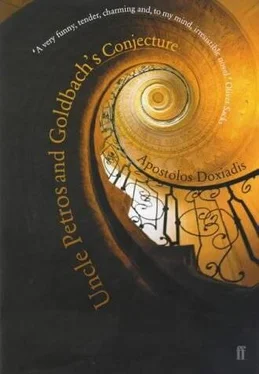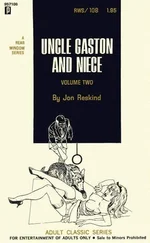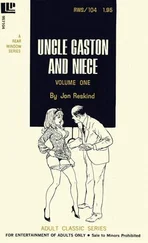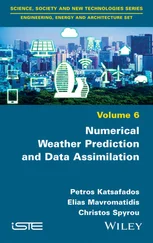'Are you Petros Papachristos from Berlin?' he asked him, after a handshake and a cautious smile. 'Constantin Caratheodory's Student?'
'I am the one, yes,’ answered Petros perplexed.
Littlewood appeared slightly ill at ease as he went on to explain: he was at that time in charge of a team of scientists doing ballistics research for the Royal Artillery as part of the war effort. Military intelligence had recently alerted them to the fact that the enemy's high accuracy of fire in the Western Front was thought to be the result of an innovative new technique of calculation, called the 'Papachristos Method'.
‘I’m sure you wouldn't have any objection to sharing your discovery with His Majesty's Government, old chap,' Littlewood concluded. 'After all, Greece is on our side.'
Petros was at first dismayed, fearing he would be obliged to waste valuable time with problems that held no more interest for him. That didn't prove necessary, though. The text of his dissertation, which he luckily had with him, contained more than enough mathematics for the needs of the Royal Artillery. Littlewood was doubly pleased since the Papachristos Method, apart from its immediate usefulness to the war effort, significantly lightened his own load, giving him more time to devote to his main mathematical interests.
So: rather than side-tracking him, Petros' earlier success with differential equations provided his entry into one of the most renowned partnerships in the history of mathematics. Littlewood was delighted to learn that the heart of his gifted Greek colleague belonged, as did his, to Number Theory, and soon he invited him to join him on a visit to Hardy's rooms. The three of them talked mathematics for hours on end. During this, and at all their subsequent meetings, both Littlewood and Petros avoided any mention of what had originally brought them together; Hardy was a fanatical pacifist and strongly opposed to the use of scientific discoveries in facilitating warfare.
After the Armistice, when Littlewood returned to Cambridge full-time, he asked Petros to collaborate with him and Hardy on a paper they had originally begun with Ramanujan. (The poor fellow was by now seriously ill and spending most of his time in a sanatorium.) At that time, the two great number theorists had turned their efforts to the Riemann Hypothesis, the epicentre of most of the unproven central results of the analytic approach. A demonstration of Bernhard Riemann's insight on the zeros of his 'zeta function' would create a positive domino effect, resulting in the proof of countless fundamental theorems of Number Theory. Petras accepted their proposal (which ambitious young mathematician wouldn't?) and the three of them jointly published, in 1918 and 1919, two papers – the two that my friend Sammy Epstein had found under his name in the bibliographical index.
Ironically, these would also be his last published work.
After this first collaboration Hardy, an uncompromising judge of mathematical talent, proposed to Petros that he accept a fellowship at Trinity and settle in Cambridge to become a permanent part of their elite team.
Petros asked for time to think it over. Of course, the proposal was enormously flattering and the prospect of continuing their collaboration had, at first glance, great appeal. Continued association with Hardy and Littlewood would no doubt result in more fine work, work that would assure his rapid ascent in the scientific community. In addition, Petros liked the two men. Being around them was not only agreeable but enormously stimulating. The very air they breathed was infused with brilliant, important mathematics.
Yet, despite all this, the prospect of staying on filled him with apprehension.
If he remained in Cambridge he would steer a predictable course. He would produce good, even exceptional work, but his progress would be determined by Hardy and Littlewood. Their problems would become his own and, what's worse, their fame would inevitably outshine his. If they did manage eventually to prove the Riemann Hypothesis (as Petros hoped they would) it would certainly be a feat of great import, a world-shaking achievement of momentous proportions. But would it be his? In fact, would even the third of the credit due to him by right be truly his own? Wasn't it likelier that his part in the achievement would be eclipsed by the fame of his two illustrious colleagues?
Anybody who claims that scientists – even the purest of the pure, the most abstract, high-flying mathematicians – are motivated exclusively by the Pursuit of Truth for the Good of Mankind, either has no idea what he's talking about or is blatantly lying. Although the more spiritually inclined members of the scientific community may indeed be indifferent to material gains, there isn't a single one among them who isn't mainly driven by ambition and a strong competitive urge. (Of course, in the case of a great mathematical achievement the field of contestants is necessarily limited – in fact, the greater the achievement the more limited the field. The rivals for the trophy being the select few, the cream of the crop, competition becomes a veritable gigantomachia, a battle of giants.) A mathematician's declared intention, when embarking on an important research endeavour, may indeed be the discovery of Truth, yet the stuff of his daydreams is Glory.
My uncle was no exception – this he admitted to me with full candour when recounting his tale. After Berlin and the disappointment with 'dearest Isolde' he had sought in mathematics a great, almost transcendent success, a total triumph that would bring him world fame and (he hoped) the cold-hearted Mädchen begging on her knees. And to be complete, this triumph should be exclusively his own, not parcelled out and divided into two or three.
Also weighing against his staying on in Cambridge was the question of time. Mathematics, you see, is a young man's game. It is one of the few human endeavours (in this very similar to sports) where youth is a necessary requirement for greatness. Petros, like every young mathematician, knew the depressing statistics: hardly ever in the history of the field had a great discovery been made by a man over thirty-five or forty. Riemann had died at thirty-nine, Niels Henrik Abel at twenty-seven and Evariste Galois at a mere tragic twenty, yet their names were inscribed in gold in the pages of mathematical history, the 'Riemann Zeta Function', 'Abelian Integrals' and 'Galois Groups' an undying legacy for future mathematicians. Euler and Gauss may have worked and produced theorems into advanced old age, yet their fundamental discoveries had been made in their early youth. In any other field, at twenty-four Petros would be a promising beginner with years and years and years of rich creative opportunities ahead of him. In mathematics, however, he was already at the peak of his powers.
He estimated that he had, with luck, at the most ten years in which to dazzle humanity (as well as 'dearest Isolde') with a great, magnificent, colossal achievement. After that time, sooner or later, his strength would begin to wane. Technique and knowledge would hopefully survive, yet the spark required to set off the majestic fireworks, the inventive brilliance and the sprightly spirit-of-attack necessary for a truly Great Discovery (the dream of proving Goldbach's Conjecture was by now increasingly occupying his thoughts) would fade, if not altogether disappear.
After not-too-long deliberation he decided that Hardy and Littlewood would have to continue on their course alone.
From now on he couldn't afford to waste a single day. His most produetive years were ahead of him, irresistibly urging him forward. He should immediately set to work on his problem.
As to which problem this would be: the only candidates he had ever considered were the three great open questions that Caratheodory had casually mentioned a few years back – nothing smaller would suit his ambition. Of these, the Riemann Hypothesis was already in Hardy and Littlewood's hands and scientific savoir-faire, as well as prudence, deemed that he leave it alone. As to Fermat's Last Theorem, the methods traditionally employed in attacking it were too algebraic for his taste. So, the choice was really quite simple: the vehicle by which he would realize his dream of fame and immortality could not be other than Goldbach's humble-sounding Conjecture.
Читать дальше









